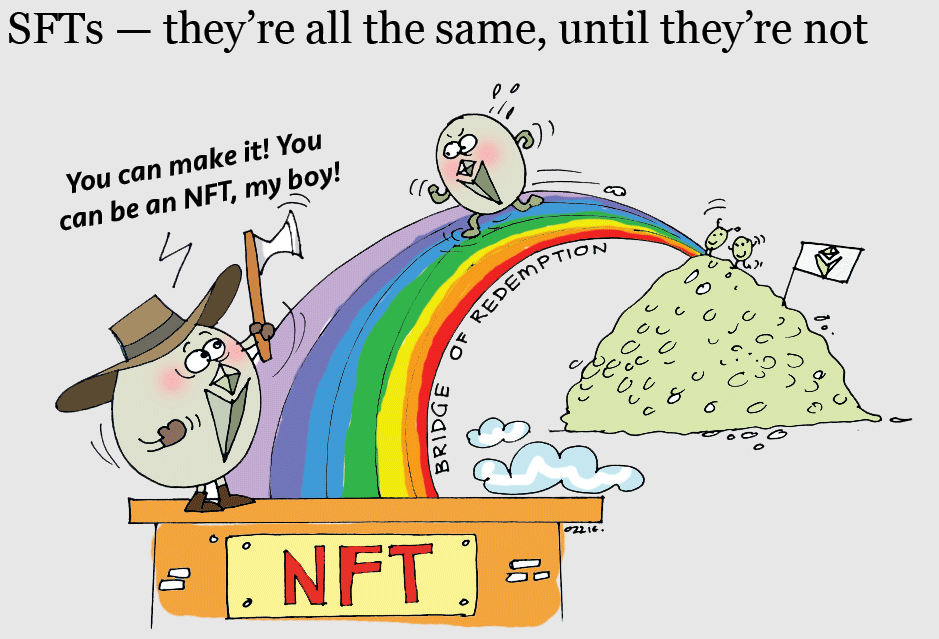

Jacob Stein
Blockchain Use Case 2: Tokenized Tickets
In the grand scheme of things, digital ticketing has not been around that long. There is evidence of the concept of ticketing dating back to ancient Rome, yet digital ticketing, for obvious reasons, has only been around for approximately the past twenty five years. Even so, many people still choose to use physical tickets in very common scenarios, such as boarding passes for planes. Digital ticketing came with many solutions to traditional ticketing, such as instant delivery and no risk of losing or damaging the ticket. Optimizing such a process, however, opened the door to many other problems, such as ticket scalping, bots, and fake ticketing. While it may have taken some impressive marketing skills to sell a fake ticket in the past, now all it takes is a convincing website. Modern problems require modern solutions. Blockchains are capable of tokenizing and identifying ownership of a digital asset, making them the perfect tool for ticketing.
Tickets fall under a special classification called semi-fungible tokens (SFTs). You probably have heard, of course, of NFTs, but SFTS may be new. Fungible tokens are all interchangeable, so cryptocurrencies and generic currencies are a great example of fungible tokens. Non-fungible tokens are uniquely identifiable, hence NFTs. These two classifications have their own Ethereum standards, ERC-20 and ERC-721 respectively, which govern what attributes they must have. Somewhere in between is the idea of semi-fungible tokens, which are at some point fungible, then at some point, not.

For the most part, unused tickets are entirely interchangeable. There may be some differences like seat number, entry group, or otherwise, but there differences hold no weight over whether or not the ticket holder will eventually recieve the service. Especially with fake tickets, we are only concerned about whether a ticket has been used or not. Thus, before an event begins, all tickets are interchangeable in that they have not been used yet for admission. At this point, they are fungible tokens. After some are used for admission, the used ones become non-fungibel, in that they cannot be interchanged randomly for other tickets. Thus, tickets are semi-fungible tokens.
So how does tokenizing tickets on the blockchain help? It solved three major problems in digital ticketing: fake tickets, scalping/botting, and security. The first is pretty self-explanatory. Before purchasing a ticket, you can publicly confirm information about its creation and ownership history, making the falsification of digital tickets nearly impossible. This will prevent people from creating entirely fake tickets or selling used tickets.
The next issue is scalping/botting. This is when someone will set up a bot to buy out all the good tickets in a venue immediately after sales open up. Computers are faster than humans, so nobody besides the botter will have a chance at getting tickets. The botter buys out the supply of tickets and essentially forms a monopoly. The botter can then resell those tickets on resale sites with an exorbitant markup, taking money from both the pockets of would-be buyers, and the original sellers. Blockchains can be used to making botting more difficult and costly, and allow original sellers to delineate rules about reselling.
The next solved issue has to do with security and data. Venue owners want to know who they are letting in, if they are vaccinated, etc. Blockchain can seemlessly store and make available this information to all involved parties. Retaining data from consumers can also allow organizers and venue owners to tailor their events and marketing to the needs of their patrons, enabling a smoother process and experience for both parties.
Implementing blockchain ticketing may be far in the future, but its certainly within the realm of possibility. Their functionality may need to be tailored by event or organization, which is something blockchain can accomodate. There also may be potential regulations about user data that may slow its growth. In either case, don't be surrpised if some of your tickets to your favorite shows and venues start becoming tokenized.
Jacob Stein
Hello! I'm a junior at Boston University studying computer science and political science. I have a strong interest in blockchain technology use-cases and implementation. This blog is just meant to document and explore my areas of interests. Feel free to comment, or contact me at jmstein@bu.edu.